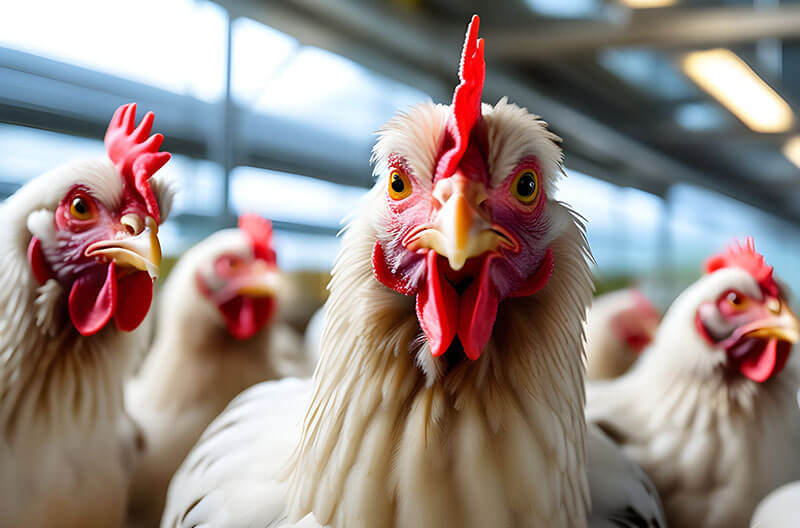Food safety is a top priority in American agriculture, and the egg and dairy sectors are no exception. Amid reports of the recurrence of avian flu in egg-laying flocks and its appearance in dairy herds, these industries are dedicated to keeping the nation’s food supply safe and secure.
NGA hosted a recent webinar to review the basics about avian flu and the steps that egg and dairy suppliers are taking, backed up by federal regulations and science, to ensure it stays out of the food supply chain. The session provided grocers with information they can share with customers to put them at ease about the safety and purity of the products on their stores’ shelves.
The discussion was led by Emily Metz, president and CEO of the American Egg Board, and Matt Herrick, SVP of public affairs and communications at the International Dairy Foods Association.
Here are some key takeaways from the discussion:
The U.S. egg supply remains safe, secure and robust. Avian Influenza, also known as H5N1, is an ongoing challenge for livestock and poultry. But egg farmers are working hard to ensure eggs remain safe and plentiful – more than 90 billion eggs annually. Consumer confidence is high, and egg sales are strong.
What is avian flu? Highly Pathogenic Avian Influenza (HPAI), or H5N1, is a highly contagious disease transmitted by wild birds to domestic poultry and other bird and animal species. More than 90 million birds (all species) have been impacted in the U.S. since 2022, including 220 commercial poultry flocks, resulting in up to $3 billion in economic losses. USDA has invested more than $793 million to combat the outbreak, with another $502 million planned. In 2024, HPAI has affected about 3 percent of U.S. egg-laying hens, in only two states.
Avian flu presents a low risk to food safety and public health, according to the USDA and CDC. USDA has confirmed bird flu cannot be transmitted through properly handled and cooked eggs and poultry. The possibility of eggs from infected poultry making it into the retail market is low, due to safeguards in place, which include testing of flocks and federal inspection programs.
Stringent biosecurity. U.S. egg farms maintain the strictest, most comprehensive biosecurity of any farms in the world – restricting visitors, cleaning and disinfecting vehicles and equipment, and using PPE for farm workers. The U.S. egg-laying flock has returned to pre-HPAI levels and egg farms impacted by more recent bird flu cases have recovered much faster than those affected in 2015, thanks to rigorous planning and preparedness.
The wholesale price of Midwest Large eggs was down more than 51 percent from its 2024 high in February. Shell egg inventory is up about 2.5 percent. Input costs for egg production (e.g., feed, labor, transportation) continue to increase.
Consumers trust eggs. Consumer sentiment about eggs is extremely positive and purchase intent remains high.
The American Egg Board is a resource and partner to grocers, including consumer insights, media monitoring, meetings with grocery leaders, market reports and HPAI expertise. (https://eggsafety.org/)
Milk and dairy products are safe, too. Avian flu was found in 49 herds across nine states, out of 23,000 dairy herds nationwide. Rigorous FDA testing shows pasteurization inactivates H5NI and destroys the virus in milk. Only milk from healthy cows enters the food supply. Dairy farmers employ advanced biosecurity practices, including PPE. There has been no impact on production, price, demand or trade.
IDFA is sharing updates with the industry via its website (www.idfa.org/hpai), stakeholder briefings and Congressional engagement.
For more exclusive insights, view a recording of the complete webinar at https://attendee.gotowebinar.com/recording/8293509995105996547.

